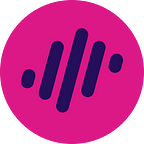Top Healthcare Trends to Watch In 2023
The healthcare industry is experiencing a lot of trends as technologies and solutions are coming up, playing an important role in the future of Medicare. The healthcare industry has taken huge steps to incorporate the solutions brought forth by these advanced technologies such as Artificial Intelligence (AI), biomedical engineering and digital ecosystems, to improve efficiency, protect user data, and reduce medical expenses.
Let's explore some of the leading healthcare trends to watch out for throughout the year.
1) Healthcare Cybersecurity
Healthcare cybersecurity is one of the trends to watch this year, largely due to the need to protect the high amount of patient data being stored and transmitted electronically. With growth in technology, cyberattacks have also increased, which can compromise patient data, disrupt healthcare services and damage reputations for players in the industry.
Research by Healthcare Cybersecurity Market indicates that hacking incidents in healthcare reached 42% in North America in 2020, as criminals took advantage of the vulnerable and strained health system.
Pulse is right in this alley, with our trendsetting technology that incorporates the blockchain technology which is harder to hack and manipulate. Our continued innovation ensures patient data is protected, even as we seek to make access to medical data more efficient.
2) Telemedicine and Virtual Healthcare Services
The use of telemedicine and virtual healthcare started to rise during the Covid-19 pandemic, as many hospitals could not handle the high capacity of patients. Since then, telemedicine has been an essential tool in providing patient care, with data indicating that this trend will keep growing in popularity, more so in developed countries who have better healthcare technologies. The use of telemedicine and virtual healthcare services has demonstrated that patients can receive better care from their homes, reducing congestion at hospitals, contamination and also costs.
Pulse Network will continue this trend with our access to full medical records, an integrated medical knowledge base and AI-aided diagnostic capability. We can empower both patients and medical practitioners to offer and receive care without the need for in-person visits
3) Value-Based Care
The value-based care (VBC) model pays care providers based on patient outcomes as opposed to the volume of services offered. This model, where the United States is a pioneer, aims to have better outcomes and care quality while being cost-effective. VBC, as many other patient-based medical practices, gained momentum during the pandemic, with its positive results pushing it to trend and be adopted more.
The healthcare industry is undergoing a season of change, largely driven by financial challenges and a dwindling workforce. The pressure to offer better care to patients is high, as this will bear more results for all stakeholders. Therefore, VBC is a service that will be adopted by more providers, seeking to attract and satisfy more patients.
4) AI and Machine Learning
AI and machine learning are technologies that can be used to detect patterns in patients, analyze patient data, improve clinical decision-making, accelerate research, streamline operations and improve risk and disease identification. These technologies have the potential to benefit stakeholders across the healthcare industry with an overall improvement in the operations.
The AI healthcare market is expected to grow to $136.79 billion by 2029, owing to the demand to reduce healthcare expenses and provide better care. Pulse is strategically placed to play a huge role in this growth, with our AI-aided diagnostic system which will allow patients to receive better treatment with more timely and accurate diagnosis.
5) Wearables and Remote Monitoring Devices
The wearables and remote monitoring devices market is growing, with many consumer-grade wearing device companies such as Apple entering the market to meet the increase in demand. The high demand is influenced by the ability of these devices to track a patient’s health and their physical activity. Therefore, it is easy to use these devices in the management of chronic diseases such as hypertension and diabetes, while providing real-time data to healthcare providers and peace of mind to patients.
The market is now full of smart devices that have grown to perform complicated scans such as ECGs, smart textiles to detect blood pressure and predict risks of heart attack, as well as smart gloves to reduce tremors suffered by Parkinson’s Disease patients. More research is being conducted to develop more sophisticated technology to help patients handle and prevent different diseases in future.
Looking Forward
The healthcare industry is currently expanding in different directions, by adapting recent technology. These above trends are changing the face of medicine, as stakeholders explore ways to offer better and more affordable care. The innovation brought by Pulse Network will contribute highly to these trends, further cementing the importance of our platform and technology to advance healthcare across the globe.
At Pulse, we will continue to develop our technology and system for better usability, with priority being on innovation that can benefit our users.
